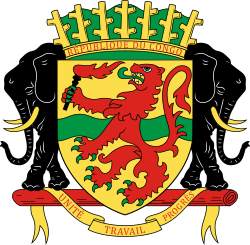| | ||||||||||||||||||||||||||||||||||||||||||||||||||||||||||||||||||||||||||||||||||||||||||
10 July 2022 (first round) 31 July 2022 (second round) | ||||||||||||||||||||||||||||||||||||||||||||||||||||||||||||||||||||||||||||||||||||||||||
All 151 seats in the National Assembly 76 seats needed for a majority | ||||||||||||||||||||||||||||||||||||||||||||||||||||||||||||||||||||||||||||||||||||||||||
This lists parties that won seats. See the complete results below.
| ||||||||||||||||||||||||||||||||||||||||||||||||||||||||||||||||||||||||||||||||||||||||||
 |
|---|
Parliamentary elections were held in the Republic of the Congo in July 2022, with the first round completed on 10 July. [1] A second round was scheduled for 31 July in constituencies where no candidates were elected in the first round. [2] [3]
